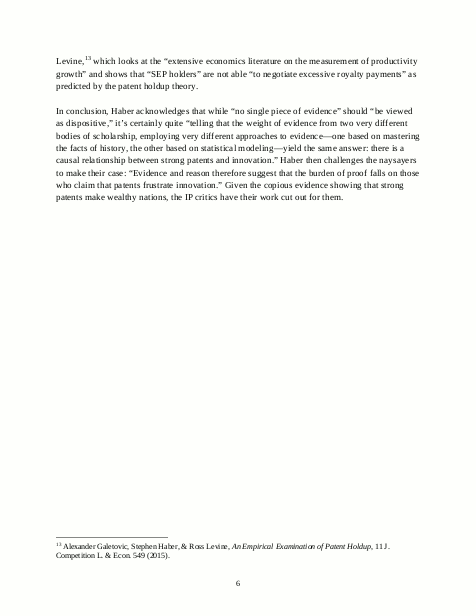

The Patent Trial and Appeal Board has awarded attorneys fees for the first time, ruling that Applications in Internet Time violated a protective order in its handling of RPX’s confidential information
Sanctions in Patent Trial and Appeal Board (PTAB) proceedings have been rare. But on July 1 the Board awarded attorneys fees for the first time.
"Battistelli lowered patent quality at the Office (to make bogus claims about so-called 'production'), so the last thing he needs is independent oversight/scrutiny over patent quality."One might choose to think of PTAB as the US equivalent of the appeal boards of the EPO, which Battistelli fights so viciously against. Battistelli lowered patent quality at the Office (to make bogus claims about so-called 'production'), so the last thing he needs is independent oversight/scrutiny over patent quality.
Patent quality control, or "strong patents" as some might call it, helps determine economic strength in some cases. Regarding this very recent article titled "How Strong Patents Make Wealthy Nations" (actually more like patent maximalism, not quality control) Benjamin Henrion just joked. The article is actually academic (unlike the paper, which is self-serving as one might expect from CPIP) and it comes from George Mason University, more specifically the Antonin Scalia Law School. Scalia, as we noted here before, was not too crazy when it comes to patents (unlike in many other areas) and the article quotes Professor Stephen Haber of Stanford University as saying "there is a causal relationship between strong patents and innovation.” The article itself says in the conclusion: "Given the copious evidence showing that strong patents make wealthy nations, the IP critics have their work cut out for them" (see corresponding PDF).
"That is more or less what happens in China and it has created a patent bubble (false evaluation of patents based on their number, not quality)."It would be easy to just grant a patent for every application and never properly assess or reassess triviality, prior art etc. That is more or less what happens in China and it has created a patent bubble (false evaluation of patents based on their number, not quality). In order for the USPTO to redeem its reputation it will need more of PTAB (hiring of more staff to cope with the growing load/demand) and the same goes for the EPO, which must hire more technical judges rather than drive them to exile and leave a lot of vacant positions while raising costs so as to lower demand). ⬆